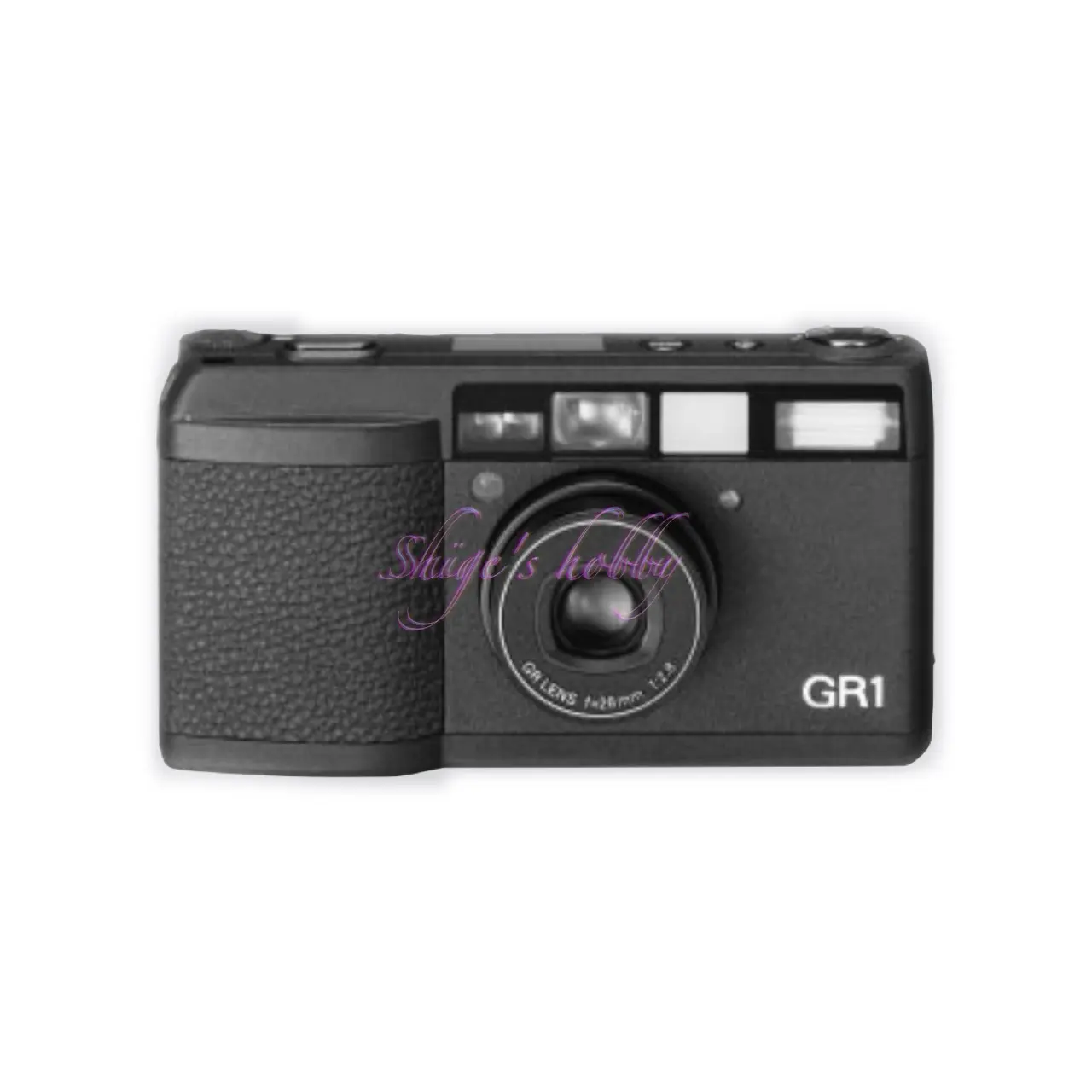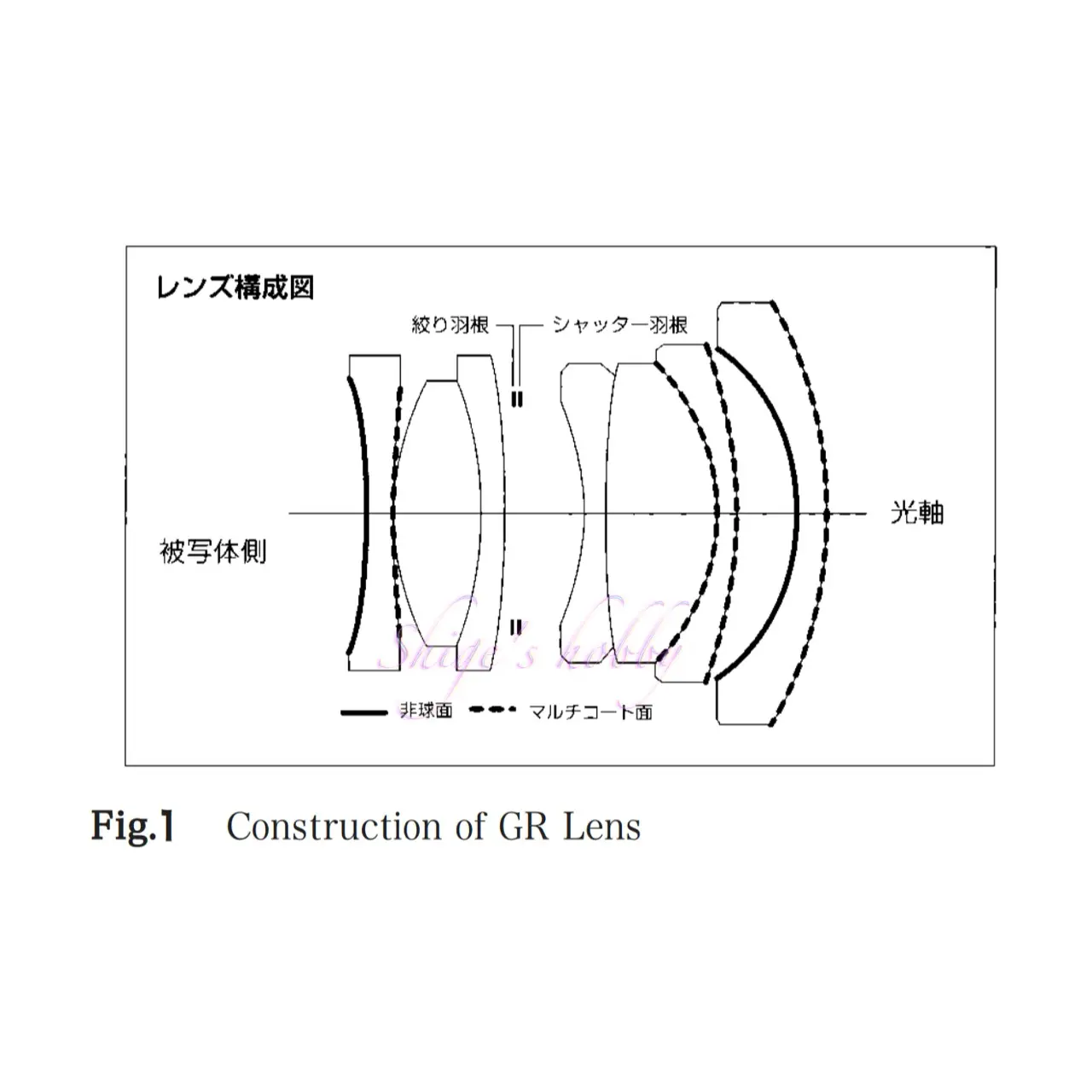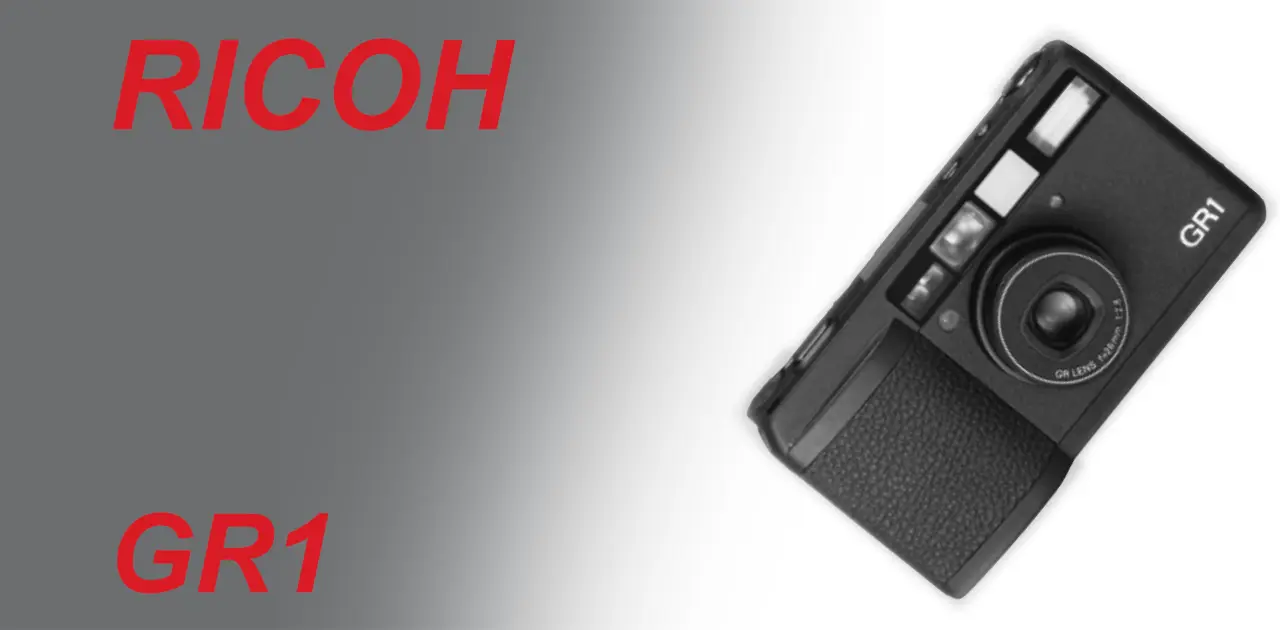Last updated on 2025-10-26
A review of the Ricoh film camera GR1 and sample photos.
Table of contents
Gallery
- The film used was KODAK Kodachrme 64 (KR64) and digitizing was done with MINOLTA DiMAGE Scan PRO. Scanning was done with VueScan’s Kodachrme profile, with slight adjustments.
Review


- The external view and lens construction diagram are taken from the technical report in the reference link.
1.Overview
The RICOH GR1 is a film camera with a 28mm wide-angle lens released by Ricoh in 1996.
The film GR series is truly compact, with a lens, flash, viewfinder, and date function (there are models with and without date) all packed into a body that is only a few millimeters thick from the film cartridge.
When you load the film into the GR1, it winds all the film into the camera once, and returns it to the film cartridge as you take pictures. This means it takes a little time to start shooting because the film winding process is done before you can start shooting, but the advantage is that the results of the shots are returned to the cartridge, so there is a low chance that the exposed film will be burned in the event of a problem such as the back cover opening.
2.Usability
The RICOH GR1 example uses Kodak Kodachrome 64, and the unique, sophisticated color and blue color, combined with the GR1’s 28mm lens, are very impressive.
The GR1’s viewfinder is a simple one that only allows you to check the shooting range, and you cannot check the focus, so you must use autofocus or manual focus.
Autofocus will not miss the focus if there is a clear subject under clear skies. However, in situations where cameras generally struggle with backlighting, dark places, or subjects that tend to blend in with the scenery, autofocus may miss the focus.
When shooting with film, the focus position is less precise than with digital cameras, so you may get better results by using MF mode and estimating the focus by eye.
The GR1 does not have a hood, so when there is a strong light source such as backlighting in the direction of the shot, undesirable light may be captured.
With a digital camera, you can preview the image on the spot, check for suspicious light, and then use a process called hare-cut to avoid it, but with a film camera, you cannot do this, so you have to avoid it by experience. The GR1s and GR1v, which are minor changes to the GR1, can be fitted with a bayonet hood.
I had an extra GR1 because I no longer used film cameras, so I asked Ms-optics / Miyazaki Kogyo if I could remove the lens and convert it to a Leica M mount. I was told that this lens cannot be converted to an M mount because the lens assembly is special and you cannot simply remove the lens barrel and insert it into Ms-Optics’ 28mm helicoid (MS-28).
3.Summary
In conclusion, to sum up the RICOH GR1, it is a truly compact camera, and if you press the shutter quickly, you will use up 36 frames in no time. That is the good thing about this camera, and in the 1990s, one roll of negative film and development costs were 1,000 yen, so it was an acceptable pastime for hobby photographers.
However, in the 2020s, the cost of film + development is not enough to casually take a large number of frames unless you are a very wealthy photographer, so it is difficult to know when to use it. The price of film cameras is not going to drop dramatically, so we are looking forward to technological innovation that will allow a 35mm full-size sensor to fit into a cartridge.
Side talk Compact film camera
The recording medium for film cameras was film, and it was the same whether it was a compact camera or a single-lens reflex camera. In the digital age, a large lens was needed to create a decent image with a 35mm full-size sensor, and high-end compact cameras (the compact part is important) with a 35mm sensor were no longer viable.
The GR series is Ricoh’s representative camera, and without the GR series that began with the GR1, Ricoh may have withdrawn from consumer cameras.
Previously, there was a camera of a similar size, the R1, which had received a certain amount of acclaim. The GR series can be said to be a key player for Ricoh brand cameras in that it made this a camera that professionals recognized and further penetrated the public.
Among compact cameras that use 35mm film, the MINOLTA TC-1 is also classified as a high-end compact camera.
However, the direction of compactness is different between the GR1 and the TC-1.
The difference is as you can see from the appearance, with the GR1 designed to be as thin as possible, and the TC-1 designed to be as narrow as possible.
It is interesting to see the two poles of evolution that created the contradiction of making the smallest possible camera without compromising the camera’s functionality, based on the fixed size of 35mm film.
In addition, a wide variety of high-end compact cameras were released, including the Contax T series, Leica MINILUX, Nikon 28Ti and 35Ti, Fujifilm KLASSE, and Konica’s BIG MINI series.
Canon, Pentax, and Olympus are far removed from high-end compact cameras, and Canon quickly withdrew from the compact camera market, so it no longer makes high-end compact cameras. Pentax and Olympus also pursued their own unique paths, such as high-magnification zooms.
The era moved on to digital cameras, and the current RICOH GR (digital) has scaled up from the small sensor 1/1.8 type to APS-C size, and is continuing to mature in that size.
This is the result of balancing image quality with camera size, while avoiding the larger lens and body that would result from the adoption of a full-size 35mm sensor.
Specification
| Items | GR1(GR1s,GR1v) | GR21 | MINOLTA TC-1 |
| Focal length | 28 | 21 | 28 |
| Lens Construction | 7elements in 4groups | 9elements in 6groups | 5elements in 5groups |
| Leaf blade | 7 | ← | Circular rotary type |
| Apature | 2.8-16 | ← | 2.8/5.6/8/16 |
| MAx Shutter Speed | 1/500 | ← | 1/750 |
| Min distance | 0.35 | 0.33 | 0.45 |
| View Finder | Lighting reverse Galilean system 0.43x Vertically: 81% Horizontally: 83% | Lighting reverse Galilean system 0.43x 83% | Real image type 0.4x 85%/3m |
| バッテリー | CR2 x1 | ← | CR123A |
| 記録メディア | 35mm film | ← | ← |
| Size(mm) W x H xD | 117 × 61 × 26.5 | 117 × 64 × 26.5 (Lens barrel 38.5mm) | 99×59×29.5 |
| Weight(g) | 175(No date / Only body) 177(Add date / Only body) | 200(Only body) | 185(Only body) |
| Release date | 1996 | 2001 | 2000.4 |
| Price(Yen/No-tax) | No date/ 90,000 Add date/ 100,000 | 138,000 | 125,000 |
Options
- Lather case
- Hood(GR1s,GR1v)
Reference links
- High-image quality thin high-end compact camera RICOH GR1|Ricoh Technical Report No.23
- RICOH GR21・Shige’s hobby
- RICOH GR 28mm・Shige’s hobby
- RICOH GR 21mm・Shige’s hobby
Update history
- 2025.5.11
- 2024.12.15
- 2024.01.08
Affiliate
- Please see the disclaimer regarding advertising here.
- Italicized links in the text are advertisement links that take you to other sites.
- RICOH camera・Ads by Amazon
- Ricoh Books・Ads by Amazon




Be First to Comment